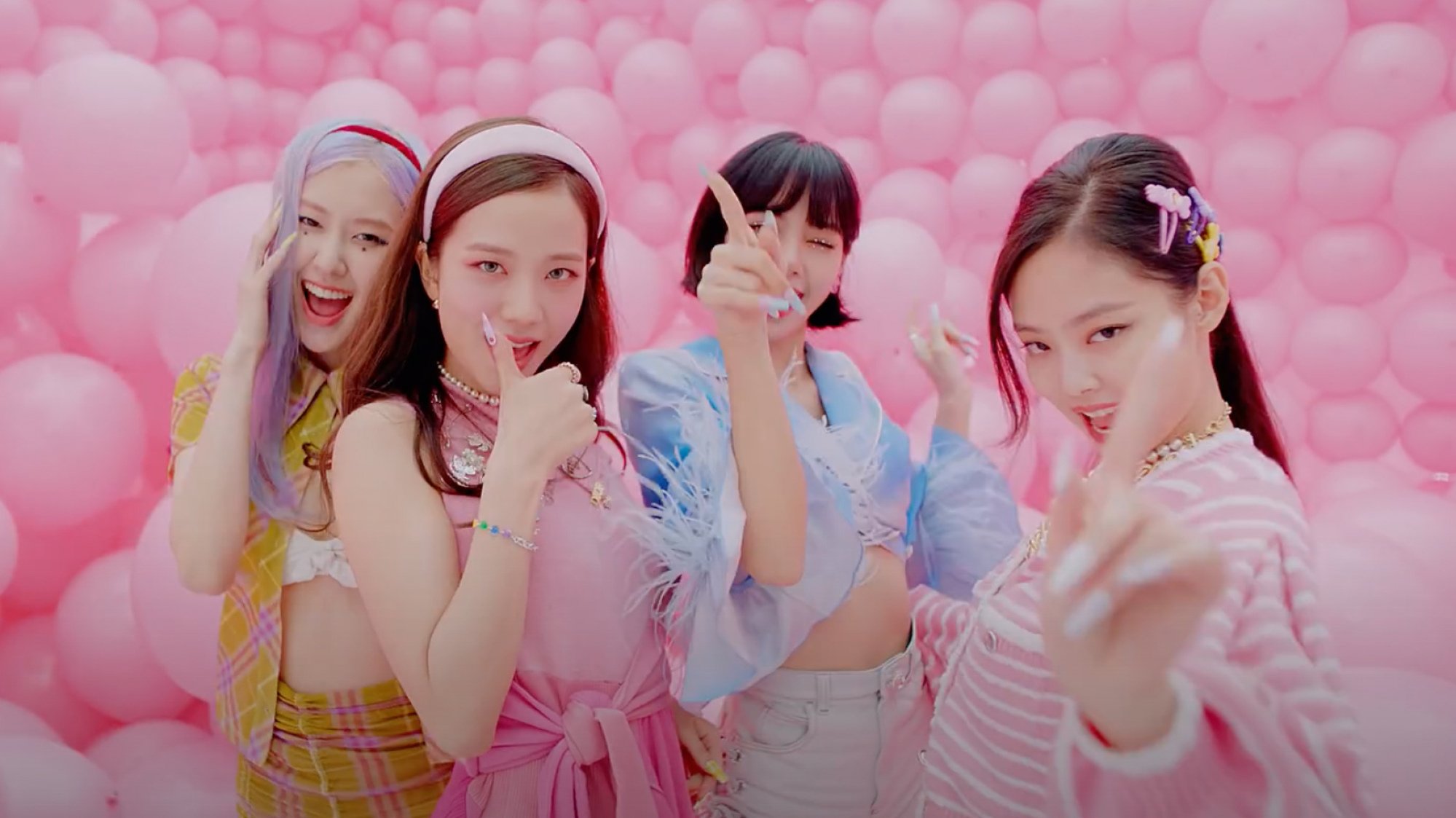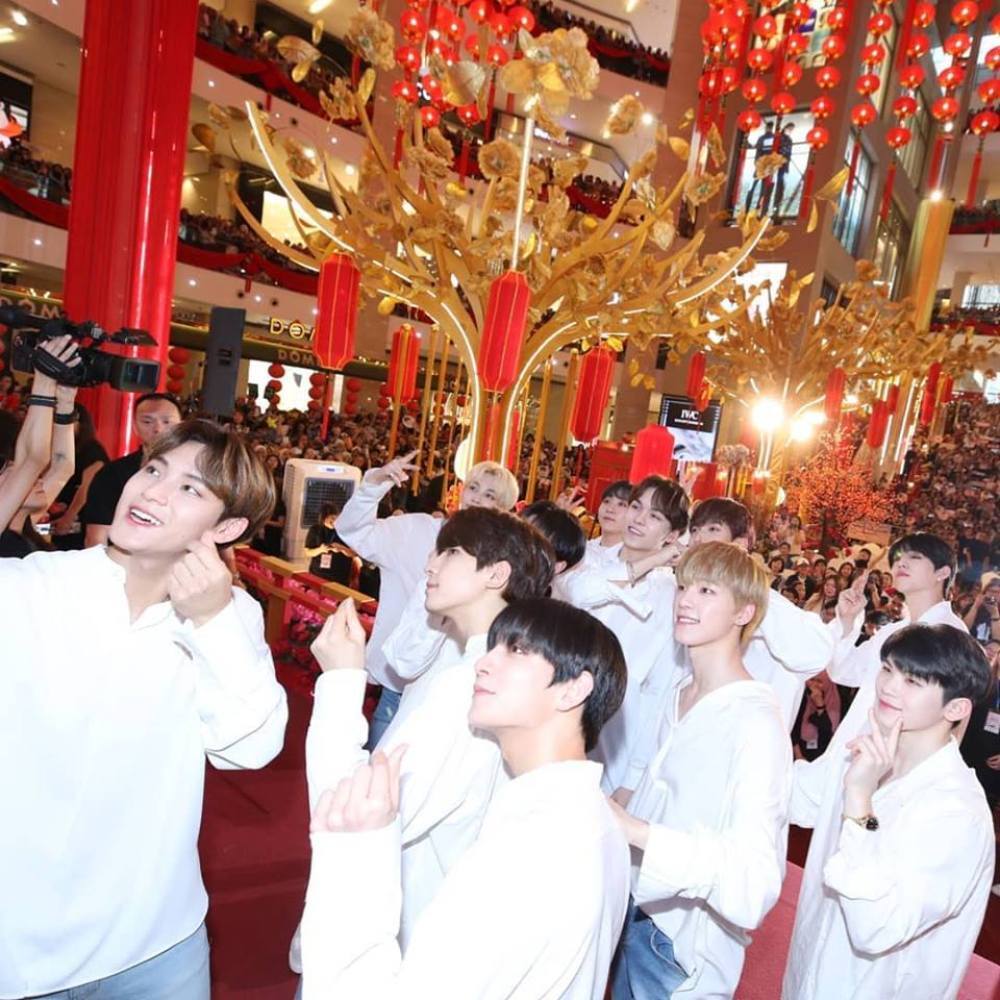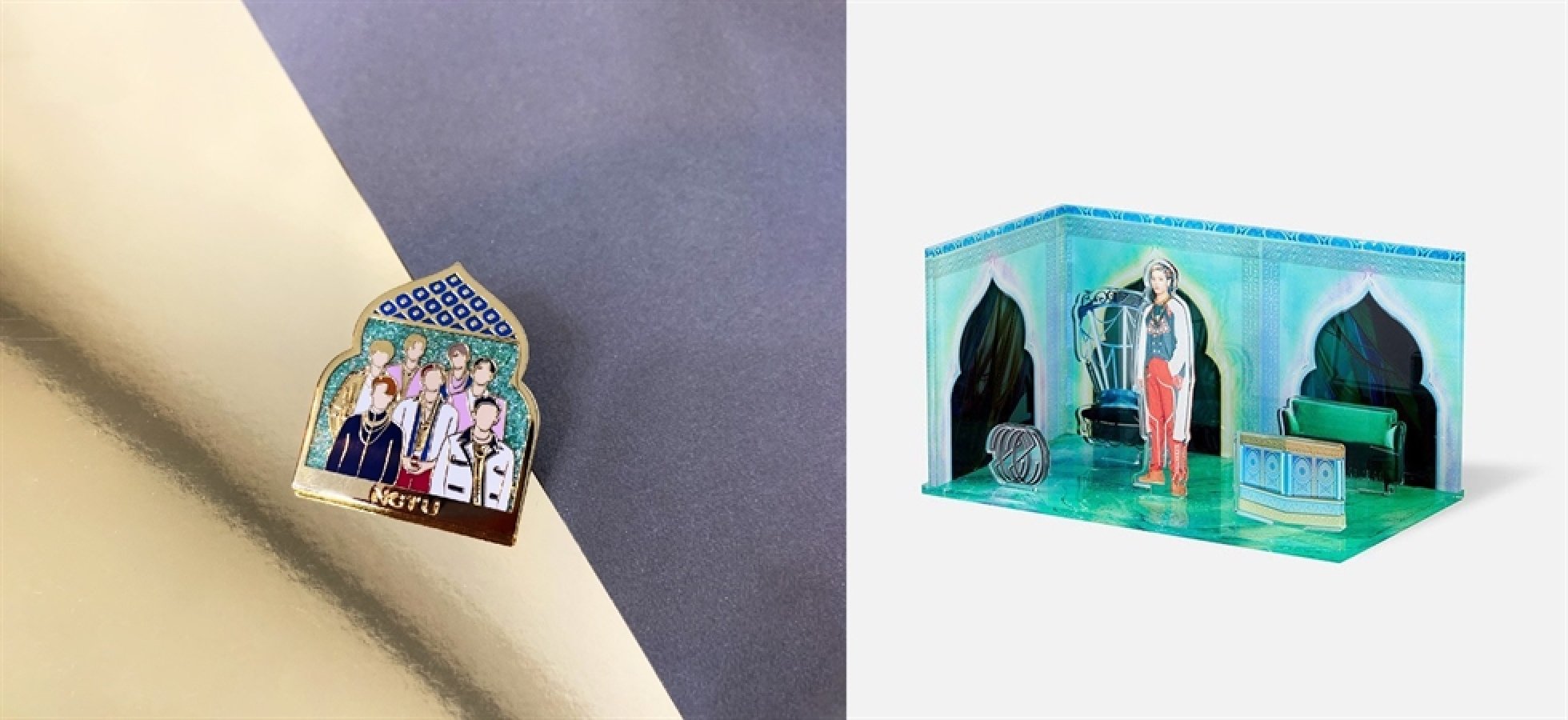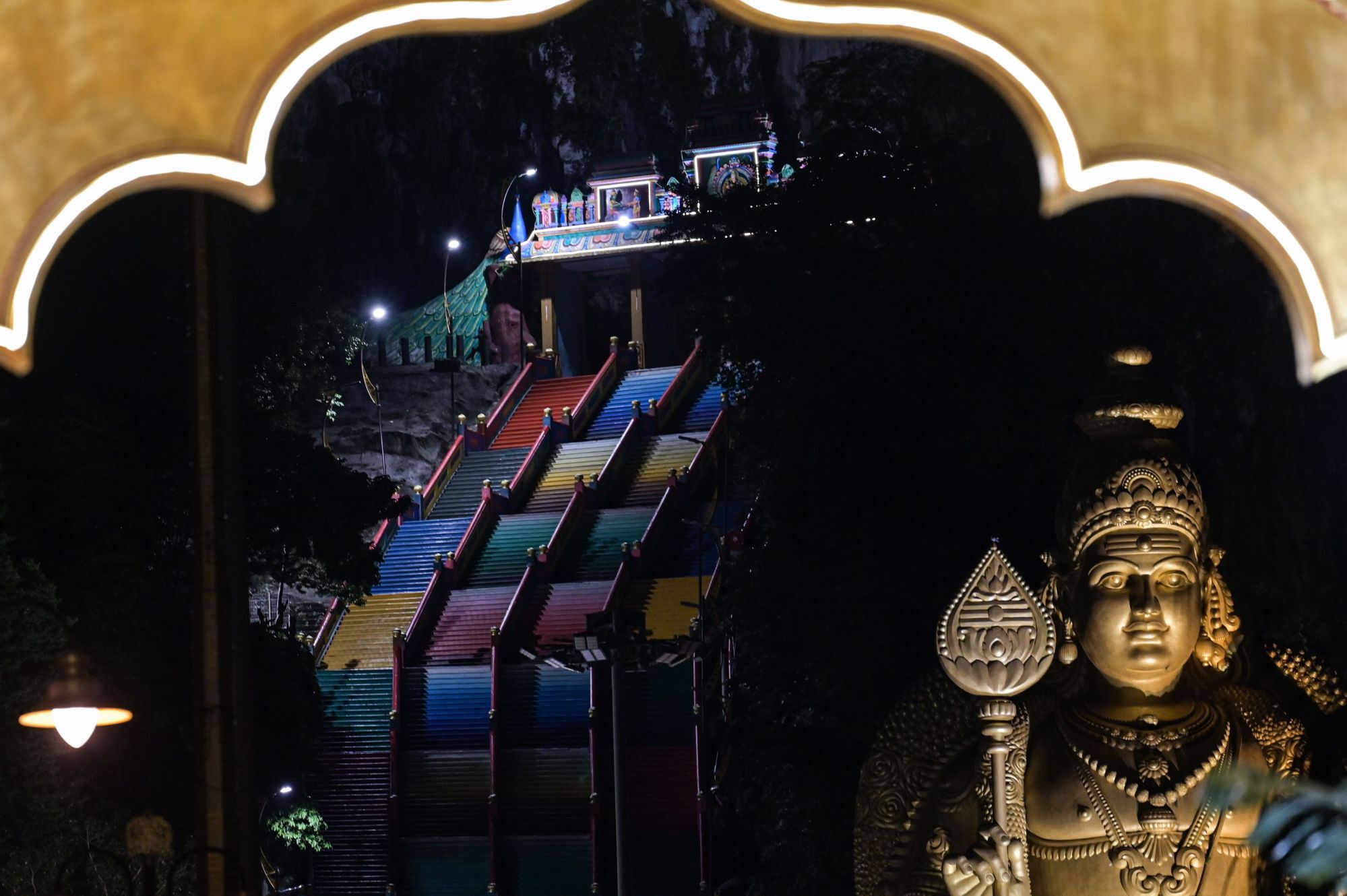Why are Malaysian musicians localising K-pop hits? Blackpink’s Ice Cream and Kill This Love are just two songs that have got a more sanitised, Islam-friendly remake

Although K-pop has its own conservative elements, there’s certainly a more explicit side to it as well: lyrics laced with sexual innuendo, performers’ provocative stage outfits and, at times, culturally insensitive use of religious imagery in performances and music videos.

Last year, all-female quartet Blackpink and Selena Gomez’s single Ice Cream came under fire for the line “play the part like Moses”, as some felt that it made light of the significant figure in Judaism, Christianity and Islam. The boy band NCT U met criticism the same year after exploiting the Imam Husayn Shrine in Iraq, a sacred site for Shia Muslims, as a stage prop, and later as an official piece of merchandise.
In 2015, another K-pop boy band B1A4 stirred up controversy when members hugged three female Malaysian fans during their mini concert, which nearly led to the girls’ arrest for “indecent acts in a public place”.
But while some Muslim fans responded to such incidents with criticism, others have been proactive in attempts to adapt K-pop to better suit local palates.
Some Muslims seem to sympathise with the point made by the label in that K-pop lyrics and music videos can be offensive to the believers
K-pop lyrics, reimagined

Amid this cultural clash, in recent years some Muslim musicians in Malaysia have made efforts to localise K-pop by replacing naughty lyrics with more wholesome, sanitised cover versions that better adhere to Islamic principles.
A major player in this movement is the Kuala Lumpur-based pop label Tarbiah Sentap Records. Rabithah, one of the label’s groups, released cover versions of Blackpink’s Ice Cream and Kill This Love ― renamed Hatiku (My Heart) and Bersama Kau (With You) in Malaysian. Both cover versions transformed what the group deemed as inappropriate allusions in the original lyrics to ones focusing on unending love and dedication to God. Each has garnered more than 300,000 and 400,000 views on YouTube respectively.
The genre that Tarbiah Sentap Records produces is known as pop nasyid, a Malaysian a cappella style that emerged in the 1990s. It focuses on fusing modern Western pop music with Islamic values and local traditional musical elements. The style appeals to a younger generation of Muslims, as it represents a Malaysian Islamic version of modernity while still incorporating popular global trends.
Local receptions of K-pop covers by pop nasyid groups have been mixed, Hong Sung-ah, a correspondent in Malaysia for the Korea Foundation for International Cultural Exchange (KOFICE), said: “Some Muslims seem to sympathise with the point made by the label in that K-pop lyrics and music videos can be offensive to the believers. But there are others who show concern that although the effort can be meaningful to the Muslim population, it can also antagonise other religious groups.”
Many Malaysian fans tell me how strict they are with themselves and their own personal lives, but they do not feel the need to extend that strictness to others
Cultural clashes
Popular foreign culture has often been vilified as a force of corruption in Malaysia. This labelling was mainly carried out by conservative authorities who have ruled the region since the 1980s and deemed such outsider influence to be a threat to their political control, according to Mary J. Ainslie, an associate professor of media and cultural studies at the University of Nottingham Ningbo China and an expert in intercultural links between East and Southeast Asia.
“As a means to retain such control, authorities promote a racially and religiously divisive form of politics, one that places emphasis upon conformity and racial and religious forms of identity,” she said.

But a majority of young Muslim K-pop fans see no glaring conflict between their religious faith and passion for global pop culture.
“Many Malaysian fans tell me how strict they are with themselves and their own personal lives, but they do not feel the need to extend that strictness to others and are not threatened by different forms of entertainment. Fans are able to negotiate a relationship with K-pop, taking what they need to express themselves and remain close to Islam,” she added.
The professor added that this comes as a result of the younger generation in particular being more educated and digitally savvy, thus becoming more accepting of foreign culture.
Hong echoed the sentiment by citing the words of Rozyyati Mohamad, editor-in-chief of Malaysian website K-Popped! that delivers news about Korean culture.
“The marked difference between the younger and older generations is that the former is much more tech-savvy and can establish their own online community,” Hong said.
This in turn helped the spread of K-pop’s influence in the country and allowed fans to share their passions with each other, even leading to collective donations to charitable causes in stars’ names.
Cultural insensitivity?

The emergence of Muslim-friendly versions of K-pop lyrics in Malaysia and efforts to reinterpret and localise the genre in other countries show that K-pop has certainly grown to exert a significant cultural influence internationally.
In some countries, the genre has expanded far beyond the cultural realm, serving as a tool to represent certain political voices. Fans of the biggest K-pop names, including BTS, Exo and Blackpink, were part of the forces mobilising the pro-democracy movement in Thailand. Recordings of Girls’ Generation’s Into the New World and Blackpink’s Kill This Love were even played during street protests.
In the United States, to show their support for the Black Lives Matter movement, fans hijacked white supremacist hashtags such as “WhiteLivesMatter” and “WhiteoutTuesday,” rendering them useless by flooding them with a barrage of unrelated K-pop content.
But along with K-pop’s rise comes mounting criticism of its cultural insensitivity.

Ainslie pointed out that the concern over such insensitivity emerges not necessarily because K-pop is inappropriate per se, but because it presents “a challenge to both authoritarian rule and local forms of identity during a time when society is changing rapidly – as we see in Malaysia – and values are under flux”.
She added that as other versions of pop culture are emerging to exert influence internationally, Korean pop cultural products, including K-pop, may begin to segment their global appeal to win over particular sets of consumers.
“This may mean that hallyu starts to conform to more specific values and appeal to a certain kind of viewer as a means to carve a niche on the international stage. Ultimately, if this happens, then it may lose other kinds of viewers.”
Want more stories like this? Sign up here. Follow STYLE on Facebook, Instagram, YouTube and Twitter.

- As the hallyu wave goes global, K-pop’s influence has shown up in unlikely places, such as BTS fans supporting America’s Black Lives Matter movement
- But groups have been criticised for cultural insensitivity too: NCT U turned Iraq’s Imam Husayn Shrine into a prop while B1A4 flouted customs in Malaysia